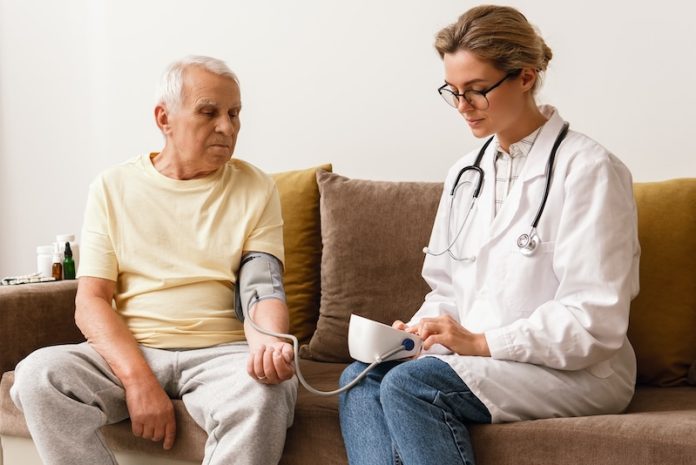
A new artificial intelligence (AI) program has been developed to assist healthcare professionals in selecting the most appropriate drug for people with high blood pressure.
This AI model utilizes patient-specific characteristics, such as demographics, vital signs, medical history, and clinical test records, to provide real-time hypertension treatment recommendations.
High blood pressure, or hypertension, is a significant health concern affecting nearly half of all Americans and is associated with an increased risk of cardiovascular diseases, stroke, and chronic heart failure.
Despite a variety of hypertension medications available, determining the most effective one for each patient can be challenging.
The AI-driven model aims to improve the accuracy of treatment selection by tailoring recommendations to individual patient profiles.
The AI-Driven Model
Data Sources: The AI model was developed using de-identified data from 42,752 hypertensive patients at Boston Medical Center (BMC) between 2012 and 2020. The dataset included patient demographics, past blood pressure records, and medical history.
Customized Medication Recommendations: The AI model generates personalized hypertension prescriptions for patients based on their unique profiles.
It provides a list of suggested medications along with associated probabilities of success. The goal is to identify the treatment that best controls systolic blood pressure for each patient, considering its effectiveness within similar patient groups.
Treatment Effectiveness: The study compared the AI model’s effectiveness to the current standard of care and other prediction algorithms.
Results indicated that the AI model achieved a 70.3% larger reduction in systolic blood pressure compared to standard care and outperformed the second-best model by 7.08%.
Clinical Validation: The model underwent clinical validation, with 350 cases manually reviewed by researchers to ensure its accuracy and reliability.
Key Findings and Implications
The AI-driven model offers a personalized approach to hypertension treatment based on machine learning algorithms, with the aim of maximizing the effectiveness of medications at the individual level.
By providing physicians with multiple suggested optimal therapies, the model can offer valuable insights, particularly in cases where the medical community is divided on the effectiveness of specific drugs (clinical equipoise).
The study highlights the benefits of de-prescribing, which involves reducing or discontinuing medications for patients taking multiple drugs.
Transparent data and clear communication of the AI model’s workings are crucial for gaining the trust of healthcare professionals and ensuring successful adoption.
The model can address healthcare disparities by tailoring care to underrepresented populations, ultimately improving outcomes for these patients.
Conclusion
The development of an AI-driven model for personalized hypertension treatment represents a significant advancement in healthcare.
By leveraging patient-specific data, this model aims to assist healthcare providers in making more informed decisions when selecting medications for individuals with high blood pressure.
The study demonstrates the potential for AI to enhance treatment outcomes, reduce systolic blood pressure effectively, and improve patient care.
Additionally, the transparency of data and model operation fosters trust among clinicians, which is vital for AI adoption in healthcare.
This personalized medicine approach has the potential to benefit diverse patient populations and advance healthcare practices.
If you care about high blood pressure, please read studies about unhealthy habits that may increase high blood pressure risk, and drinking green tea could help lower blood pressure.
For more information about high blood pressure, please see recent studies about what to eat or to avoid for high blood pressure, and 12 foods that lower blood pressure.
The research findings can be found in BMC Medical Informatics and Decision Making.
Follow us on Twitter for more articles about this topic.
Copyright © 2023 Knowridge Science Report. All rights reserved.



